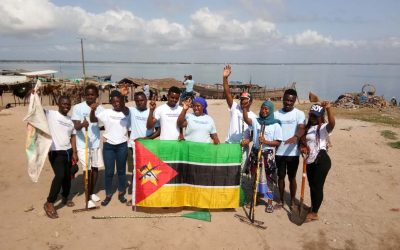Peace
Building Inclusive Paths
The project took place in:
Sri Lanka
Workcamp
Written by Building Inclusive Paths Team
After a few weeks of job-shadowing in Sri Lanka, we have noticed how difficult it is to take a position in a conflict in which we don’t belong.
Almost 30 years of civil war provoked the polarization of the society as something permanent that we can see in every stage of living, like in land issues, housing, distribution of resources as well as in the feelings of the people. As Dr. Harshana Rambukwella wrote in Reconciling what? History, Realism and the Problem of an Inclusive Sri Lanka identity (2012), “Even a cursory look at Sri Lanka’s immediate pre-independence and post-independence history reveals a singular lack of a pan-Sri Lankan identity. Two significant nationalisms have emerged in post-independence Sri Lanka, Sinhala and Tamil. These Nationalisms have been locked in, what Darini Rajasingham-Senanayake (1999) calls a ‘bi-polar debate’ which leaves little space to discuss alternative and inclusive conceptions of nationhood. (…) While Sri Lankan history may not yield much evidence of an inclusive national identity one needs to raise the question as to why literature, which might be seen as a discourse where the improbable and idealistic is often explored, has failed to yield such a conception of idealistic nationhood.”
Considering the complexity of the conflict and therefore, of the reconciliation between Sri Lankan society, our perception being outsiders are mixed with the feelings of the people interviewed and their needs, which seem to be different from person to person. So far, what we have observed is a lack of a well planed process of reconciliation where the education should be the principal aspect to tackle. For example, most of public schools are divided in three different mediums (Singhala-Tamil-English) -moreover there are also religious schools as Buddhist, Hindu, Christian and Islamic- which affects the relations of the children growing in an environment where the segregation between languages or/and religions are constant. After the interviews that we have done until now, the perception also of the local people is that this kind of separation could reinforce or increase the rejection of the diversity, the racism between different ethnic groups and the violent demands from religions.
Therefore, our aspiration in these two months of job-shadowing is to have an idea about how a government can optimize the reconciliation process through the creation and implementation of a new way to understand the education trusting and involving all the society.
Building Inclusive Paths is a global action aimed at fostering transnational capacity building on conflict transformation and nonviolent resolution. It will gather youngsters from two European countries (Spain and Italy) and from three programme countries (India, Sri Lanka, Nigeria) affected by past or current internal conflicts. Co-funded by the Erasmus+ Programme of the European Union.
You can still join!
Want to have your own volunteer experience for peace?
Read more Voices of Volunteers




